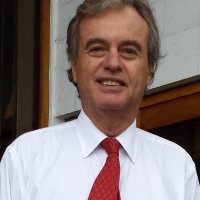¿QUE HEMOS HECHO?: Reflexiones sobre respuestas y políticas públicas frente al incremento de la violencia delincuencial en America Latina (No. 30)


Over a period of the last two decades or more, multiple manifestations of crime and social violence in Latin America have progressively worsened. Today Latin America is, in terms of crime, the most violent region in the world. With each passing day, crime is more at the center of public concerns and the focus of citizens’ demands on the state. This is true not only in the countries with the most serious crime problems; it is also true in countries where the situation is not as severe but where the frequency of violent incidents and the sense of vulnerability, impunity, and deterioration create a heightened perception of insecurity. This perception of insecurity is at times higher than in the countries where levels of crime are the worst.
We are faced with one of the most serious and intractable problems in the region; and the contrast with other serious problems in Latin America is notable. For example, notwithstanding the vigorous debates over the best economic development model in the region, there is no question that Latin America as a whole is at least somewhat better off economically than it was two decades ago. Similarly, the data on poverty reduction as well as certain improvements in the quality of education, health, and infrastructure demonstrate that the region is to some extent less unjust and exclusionary than before.
The perception with respect to insecurity in Latin America, however, is that nothing that has been done has shown results, that we are taking blind stabs at the problem and that it has only become worse and more unmanageable. This explains why insecurity has increasingly overcome a combination of economic concerns to be perceived as the principal problem faced by citizens in the region.
Que Hemos Hecho does not attempt to downplay the seriousness of the situation or the deterioration of citizen security in Latin America; nor does it pretend that the public policies adopted thus far have been sufficiently effective or that it is only a matter of time until they are. Rather, the goal is to break with a simplistic view of reality and paint a broad overview of the various initiatives taken by states, civil society, and the international community to improve citizen security.
This report considers multiple actions and measures, not always complementary and frequently contradictory; at times, some have even been outright counterproductive. It considers actions that have been taken by the state, by organized civil society, and by the civilian population at large, along with the role of other important actors such as the media, the churches, and universities. The fundamental purpose of this study is to demonstrate that much has been done. Hence, any analysis or public policy decision should be based on an understanding and evaluation of what has already been attempted. In light of current results, it is clear that the responses to date have been inadequate or have failed altogether. At the same time, there have been some positive developments at certain times and in certain circumstances. We can learn much from what has been attempted. This report serves to demonstrate the diversity as well as the complexity of what has occurred.
Que Hemos Hecho is available in Spanish with a comprehensive executive summary in English through the links found below.
Author

Columnist, Perú21

Latin America Program
The Wilson Center’s prestigious Latin America Program provides non-partisan expertise to a broad community of decision makers in the United States and Latin America on critical policy issues facing the Hemisphere. The Program provides insightful and actionable research for policymakers, private sector leaders, journalists, and public intellectuals in the United States and Latin America. To bridge the gap between scholarship and policy action, it fosters new inquiry, sponsors high-level public and private meetings among multiple stakeholders, and explores policy options to improve outcomes for citizens throughout the Americas. Drawing on the Wilson Center’s strength as the nation’s key non-partisan policy forum, the Program serves as a trusted source of analysis and a vital point of contact between the worlds of scholarship and action. Read more




